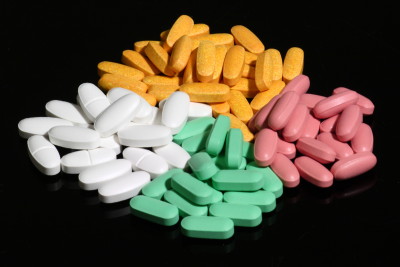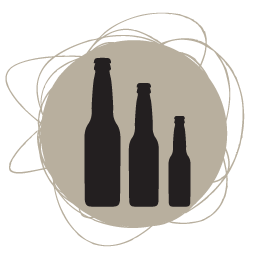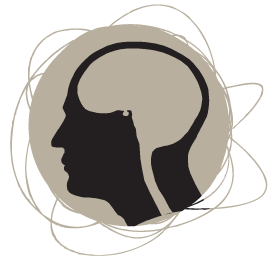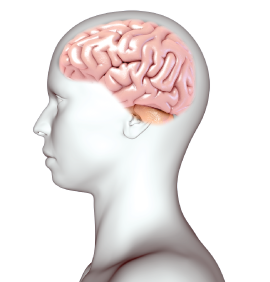< Although there are very physical aspects of addiction, individuals can also develop a psychological dependence on the substance. The idea of stopping the use of the drug can cause anxiety, depression or other negative emotional states of mind.
Furthermore, the psychological aspects may be related to more complicated situations, such as trauma or a mental health disorder.
Addiction is a complicated disease that can be caused by a variety of factors. It is a physical and psychological dependence on a particular substance and it can be very difficult and even dangerous to stop using certain substances without the assistance of professionals.
Although there are very physical aspects of addiction, individuals can also develop a psychological dependence on the substance. The idea of stopping the use of the drug can cause anxiety, depression or other negative emotional states of mind.
Furthermore, the psychological aspects may be related to more complicated situations, such as trauma or a mental health disorder.
Addiction is a complicated disease that can be caused by a variety of factors. It is a physical and psychological dependence on a particular substance and it can be very difficult and even dangerous to stop using certain substances without the assistance of professionals.
 Pain relievers or other medications may be taken after an injury, surgery or similar situation. Unfortunately, some medications can be habit forming and addictions can develop accidentally.
Even when an individual actively makes the decision to use or abuse an illicit substance, they may not fully understand the dangers of the substance or it may be in relation to the symptoms of a mental health disorder.
There are many reasons that individuals may use or abuse drugs and alcohol. In some cases, addictions can develop on accident when an individual is using a substance under the guidance of a doctor.
The initial reasons that individuals may use or abuse a substance can include:
Pain relievers or other medications may be taken after an injury, surgery or similar situation. Unfortunately, some medications can be habit forming and addictions can develop accidentally.
Even when an individual actively makes the decision to use or abuse an illicit substance, they may not fully understand the dangers of the substance or it may be in relation to the symptoms of a mental health disorder.
There are many reasons that individuals may use or abuse drugs and alcohol. In some cases, addictions can develop on accident when an individual is using a substance under the guidance of a doctor.
The initial reasons that individuals may use or abuse a substance can include:
 en encourages the individual to use or abuse the substance in the future. Unfortunately, the more an individual uses a substance, the greater the tolerance that he or she builds up over time.
That means that the individual will need to use more of the substance to get the same impact on the body and mind.
Along with the increased amount of dopamine that is released into the body, the memory is also impacted by the substance. According to the National Institutes on Health, memories of the feelings that develop after abusing the substance can arise when there are triggers in the individual’s environment.
For example, an individual may see a person, place or even an object that was seen after the substance was abused. The person, place or object will then trigger the craving for the substance.
en encourages the individual to use or abuse the substance in the future. Unfortunately, the more an individual uses a substance, the greater the tolerance that he or she builds up over time.
That means that the individual will need to use more of the substance to get the same impact on the body and mind.
Along with the increased amount of dopamine that is released into the body, the memory is also impacted by the substance. According to the National Institutes on Health, memories of the feelings that develop after abusing the substance can arise when there are triggers in the individual’s environment.
For example, an individual may see a person, place or even an object that was seen after the substance was abused. The person, place or object will then trigger the craving for the substance.


 According to the Addiction Technology Transfer Center Network, the ways that drugs and alcohol can change the brain causes distortions in the individual’s cognitive functions and emotional responses.
The substance essentially takes control of the brain’s motivational circuits, explains the Addiction Technology Transfer Center Network, and makes the substance the top priority.
Due to the drugs impact on the way the brain functions and the cognitive abilities of the individual, it can be difficult to ignore the compulsion to abuse a drug or alcohol.
Over time, the impact on the brain increases and the process of recovery can become more challenging.
According to the Addiction Technology Transfer Center Network, the ways that drugs and alcohol can change the brain causes distortions in the individual’s cognitive functions and emotional responses.
The substance essentially takes control of the brain’s motivational circuits, explains the Addiction Technology Transfer Center Network, and makes the substance the top priority.
Due to the drugs impact on the way the brain functions and the cognitive abilities of the individual, it can be difficult to ignore the compulsion to abuse a drug or alcohol.
Over time, the impact on the brain increases and the process of recovery can become more challenging.

 The individual may be tempted to abuse the substance, even after a long period of abstinence.
Even though a relapse is a possibility, the National Institute on Drug Abuse states that it is not a failure to recover; instead, it is a sign that something needs to change or that the individual needs to pursue a new treatment option.
The risk of relapsing can be reduced by continuing to treat the addiction and following through with an aftercare program. Aftercare programs can vary between treatment plans, but they provide continued counseling and guidance so that long-term recovery is possible.
The individual may be tempted to abuse the substance, even after a long period of abstinence.
Even though a relapse is a possibility, the National Institute on Drug Abuse states that it is not a failure to recover; instead, it is a sign that something needs to change or that the individual needs to pursue a new treatment option.
The risk of relapsing can be reduced by continuing to treat the addiction and following through with an aftercare program. Aftercare programs can vary between treatment plans, but they provide continued counseling and guidance so that long-term recovery is possible.
 ]]]]><![CDATA[>
]]]]>< Although there are very physical aspects of addiction, individuals can also develop a psychological dependence on the substance. The idea of stopping the use of the drug can cause anxiety, depression or other negative emotional states of mind.
Furthermore, the psychological aspects may be related to more complicated situations, such as trauma or a mental health disorder.
Addiction is a complicated disease that can be caused by a variety of factors. It is a physical and psychological dependence on a particular substance and it can be very difficult and even dangerous to stop using certain substances without the assistance of professionals.
Although there are very physical aspects of addiction, individuals can also develop a psychological dependence on the substance. The idea of stopping the use of the drug can cause anxiety, depression or other negative emotional states of mind.
Furthermore, the psychological aspects may be related to more complicated situations, such as trauma or a mental health disorder.
Addiction is a complicated disease that can be caused by a variety of factors. It is a physical and psychological dependence on a particular substance and it can be very difficult and even dangerous to stop using certain substances without the assistance of professionals.
Initial Substance Abuse
Misunderstandings about substance abuse and addiction often develop with the idea that individuals choose to take the drug and therefore cause their own addictions. The National Institute on Drug Abuse states that many individuals have the mistaken idea that addiction recovery is a simple matter of willpower. According to the National Institute on Drug Abuse, there is a mistaken belief that substance abuse begins with a lack of morals and that addiction recovery requires nothing more than stubbornness and willingness to recover. Although individuals can be willing to recover from addiction, they may not be able to recover without assistance. There are many factors that contribute to addiction and not every situation is related to willpower or a lack of morals.Unexpected Addiction
In many cases, addiction is not necessarily related to purposeful actions. Although many individuals choose to use a substance for a variety of reasons, they do not usually expect an addiction to develop. For some individuals, addiction may develop accidentally as the direct result of a medical necessity. Pain relievers or other medications may be taken after an injury, surgery or similar situation. Unfortunately, some medications can be habit forming and addictions can develop accidentally.
Even when an individual actively makes the decision to use or abuse an illicit substance, they may not fully understand the dangers of the substance or it may be in relation to the symptoms of a mental health disorder.
There are many reasons that individuals may use or abuse drugs and alcohol. In some cases, addictions can develop on accident when an individual is using a substance under the guidance of a doctor.
The initial reasons that individuals may use or abuse a substance can include:
Pain relievers or other medications may be taken after an injury, surgery or similar situation. Unfortunately, some medications can be habit forming and addictions can develop accidentally.
Even when an individual actively makes the decision to use or abuse an illicit substance, they may not fully understand the dangers of the substance or it may be in relation to the symptoms of a mental health disorder.
There are many reasons that individuals may use or abuse drugs and alcohol. In some cases, addictions can develop on accident when an individual is using a substance under the guidance of a doctor.
The initial reasons that individuals may use or abuse a substance can include:
- Trying to alleviate chaotic memories and emotions that are associated with a traumatic experience
- Taking a medication for legitimate medical reasons
- Gradually increasing the amount of alcohol to obtain the same feelings
- Peer pressure
- Curiosity or experimentation
Changes to the Brain
Addiction has an impact on the mind and the body. According to How Stuff Works, the body uses a reward system by releasing dopamine. Although there are healthy activities, such as exercising, that can release dopamine, certain substances cause the brain to release more dopamine than it needs. The reward system th en encourages the individual to use or abuse the substance in the future. Unfortunately, the more an individual uses a substance, the greater the tolerance that he or she builds up over time.
That means that the individual will need to use more of the substance to get the same impact on the body and mind.
Along with the increased amount of dopamine that is released into the body, the memory is also impacted by the substance. According to the National Institutes on Health, memories of the feelings that develop after abusing the substance can arise when there are triggers in the individual’s environment.
For example, an individual may see a person, place or even an object that was seen after the substance was abused. The person, place or object will then trigger the craving for the substance.
en encourages the individual to use or abuse the substance in the future. Unfortunately, the more an individual uses a substance, the greater the tolerance that he or she builds up over time.
That means that the individual will need to use more of the substance to get the same impact on the body and mind.
Along with the increased amount of dopamine that is released into the body, the memory is also impacted by the substance. According to the National Institutes on Health, memories of the feelings that develop after abusing the substance can arise when there are triggers in the individual’s environment.
For example, an individual may see a person, place or even an object that was seen after the substance was abused. The person, place or object will then trigger the craving for the substance.
Becoming Dependent
Over time, the cravings become a compulsion that is hard for an individual to resist. The changes to the brain can become significant as the body’s hormonal balances shift and change. Depending on the duration of substance abuse and the particular drug, the exact impact on the brain can vary. In some cases, the changes that occur will not reverse after an individual stops abusing the substance. The person may feel cravings for the substance, even after he or she has not used the drug for an extended period of time.The Adolescent Brain
Substance abuse impacts the brain of adults and adolescents, but the impact on a young mind can be more complicated due to the way that the brain develops. According to the National Institute on Mental Health, the brain of a teenager or young adult is still developing. It is not until the early 20s that the brain is fully developed, which means that a young individual can be more likely to see major changes to the brain after abusing drugs or alcohol. The National Institute on Mental Health explains that the part of the brain that controls behavior and allows an adult to plan ahead and understand the consequences of certain actions does not fully develop until the early 20s. As a result, teenagers may abuse drugs or alcohol without fully understanding the risks or the possibility of developing an addiction in the future.
Affecting Development
The National Institutes on Health state that alcohol and marijuana abuse during the teen years can actually impact the way that the brain develops. Binge drinking, in particular, is shown to cause abnormalities in cognitive functioning and understanding in teenagers and young adults. Since the brain is still developing, the areas of the brain that are not fully mature are impacted by substance abuse and can develop in ways that differ from healthy teenagers who do not abuse drugs or alcohol. Depending on the specific substance, the particular impact on the developing brain of an adolescent can vary; however, parts of the brain that are still developing and growing can see a major impact. Those teenagers may face complications when they attempt to recover from substance abuse and their brain may not fully recover, even after years of maintaining a drug and alcohol-free lifestyle.The Withdrawal Symptoms
How Stuff Works explains that withdrawal symptoms can develop when an individual is physically dependent on the substance because the body is trying to rebalance hormone levels. Drugs cause the body to release a significantly high amount of dopamine when compared to normal. As a result, individuals can develop withdrawal symptoms when the body tries to rebalance the hormone levels. Prolonged use of the substance can make the impact of the body’s attempt to rebalance the hormone levels more intense. Depending on the substance, withdrawal symptoms can become severe or very uncomfortable. Web MD explains that withdrawal symptoms can also impact emotions. In some cases, individuals will develop anxiety, depression, anger or extreme mood swings while trying to stop using the substance. When an individual has abused a substance for an extended period of time, he or she may develop more extreme withdrawal symptoms. The mild symptoms that may develop during alcohol or drug withdrawal include:- Nausea and vomiting
- Lack of appetite
- Insomnia or difficulty sleeping
- Shakiness
- General moodiness or irritability
- Anxiety
- Pain in the abdominal muscles
- General aches
- Seizures

- Heart attacks
- Severe flu-like symptoms
- Hallucinations
- Severe trembling or shaking
- Extreme confusion or difficulty focusing
- Sweating that drenches the body
- Extreme abdominal or stomach pain
- Nervousness
- Stroke
- Death
Recovery from Addiction
Due to the way that addiction impacts the brain and the body, recovery can be challenging for many individuals. The reason is that the brain and the body will still crave the substance and will encourage the individual to continue abusing the drug. According to the Addiction Technology Transfer Center Network, the ways that drugs and alcohol can change the brain causes distortions in the individual’s cognitive functions and emotional responses.
The substance essentially takes control of the brain’s motivational circuits, explains the Addiction Technology Transfer Center Network, and makes the substance the top priority.
Due to the drugs impact on the way the brain functions and the cognitive abilities of the individual, it can be difficult to ignore the compulsion to abuse a drug or alcohol.
Over time, the impact on the brain increases and the process of recovery can become more challenging.
According to the Addiction Technology Transfer Center Network, the ways that drugs and alcohol can change the brain causes distortions in the individual’s cognitive functions and emotional responses.
The substance essentially takes control of the brain’s motivational circuits, explains the Addiction Technology Transfer Center Network, and makes the substance the top priority.
Due to the drugs impact on the way the brain functions and the cognitive abilities of the individual, it can be difficult to ignore the compulsion to abuse a drug or alcohol.
Over time, the impact on the brain increases and the process of recovery can become more challenging.
Treatment Programs
During a treatment program, professionals consider all of the possible aspects of addiction, including the way that it changes the brain and impacts the body’s hormonal balance. While there is some variation between programs and facilities, most treatment programs will include:
- Detoxification, which may be required before entering a treatment program or may be part of the treatment program
- Cognitive-behavioral treatments
- Various forms of counseling, including group, individual and family counseling
- Fitness programs
- Life skills training
- Educational programs
- Healthy nutrition
- Medical examinations and appropriate treatments
- Dual-diagnosis treatments if they are necessary for the individual
Addiction Is A Disease
Addiction is a disease that impacts the brain and the body. As a result, individuals can behave in ways that seem abnormal, risky or violent. Even though the disease is hard on the body, mind and spirit, treatment is available to help with the process of recovery. Obtaining professional treatment is recommended for every individual who is abusing drugs or alcohol due to the potential risks involved in the detoxification process and the way that the brain changes during the abuse of drugs or alcohol. The National Institute on Drug Abuse states that addiction can be managed like any other relapsing disease, but it does require the proper treatment and management plan.Relapse Risks
After completing a treatment program and working toward recovery goals, it is possible that a relapse will occur in the future. The National Institute on Drug Abuse explains that relapsing can occur because of the way that drugs impact and change the brain. The individual may be tempted to abuse the substance, even after a long period of abstinence.
Even though a relapse is a possibility, the National Institute on Drug Abuse states that it is not a failure to recover; instead, it is a sign that something needs to change or that the individual needs to pursue a new treatment option.
The risk of relapsing can be reduced by continuing to treat the addiction and following through with an aftercare program. Aftercare programs can vary between treatment plans, but they provide continued counseling and guidance so that long-term recovery is possible.
The individual may be tempted to abuse the substance, even after a long period of abstinence.
Even though a relapse is a possibility, the National Institute on Drug Abuse states that it is not a failure to recover; instead, it is a sign that something needs to change or that the individual needs to pursue a new treatment option.
The risk of relapsing can be reduced by continuing to treat the addiction and following through with an aftercare program. Aftercare programs can vary between treatment plans, but they provide continued counseling and guidance so that long-term recovery is possible.
Long-Term Treatment Plans
Long-term treatment may also be helpful for individuals who have been abusing a substance for an extended period of time and have relapsed after seeking professional treatment in the past. There is no single treatment plan that is appropriate for every individual, so it is important to be educated on all the available options. Recovering from addiction requires an understanding of the way that drugs or alcohol impact the individual. Since the brain is effected by substance abuse, it is important to focus on a treatment plan that is personalized to the needs of each individual. Sources: DrugFacts: Understanding Drug Abuse and Addiction The Essence of Drug Addiction How Addiction Works The Changed Brain: Addiction is a Brain Disease The Influence of Substance Use on Adolescent Brain Development Alcohol or Drug Withdrawal ]]]]><![CDATA[>
]]]]><
